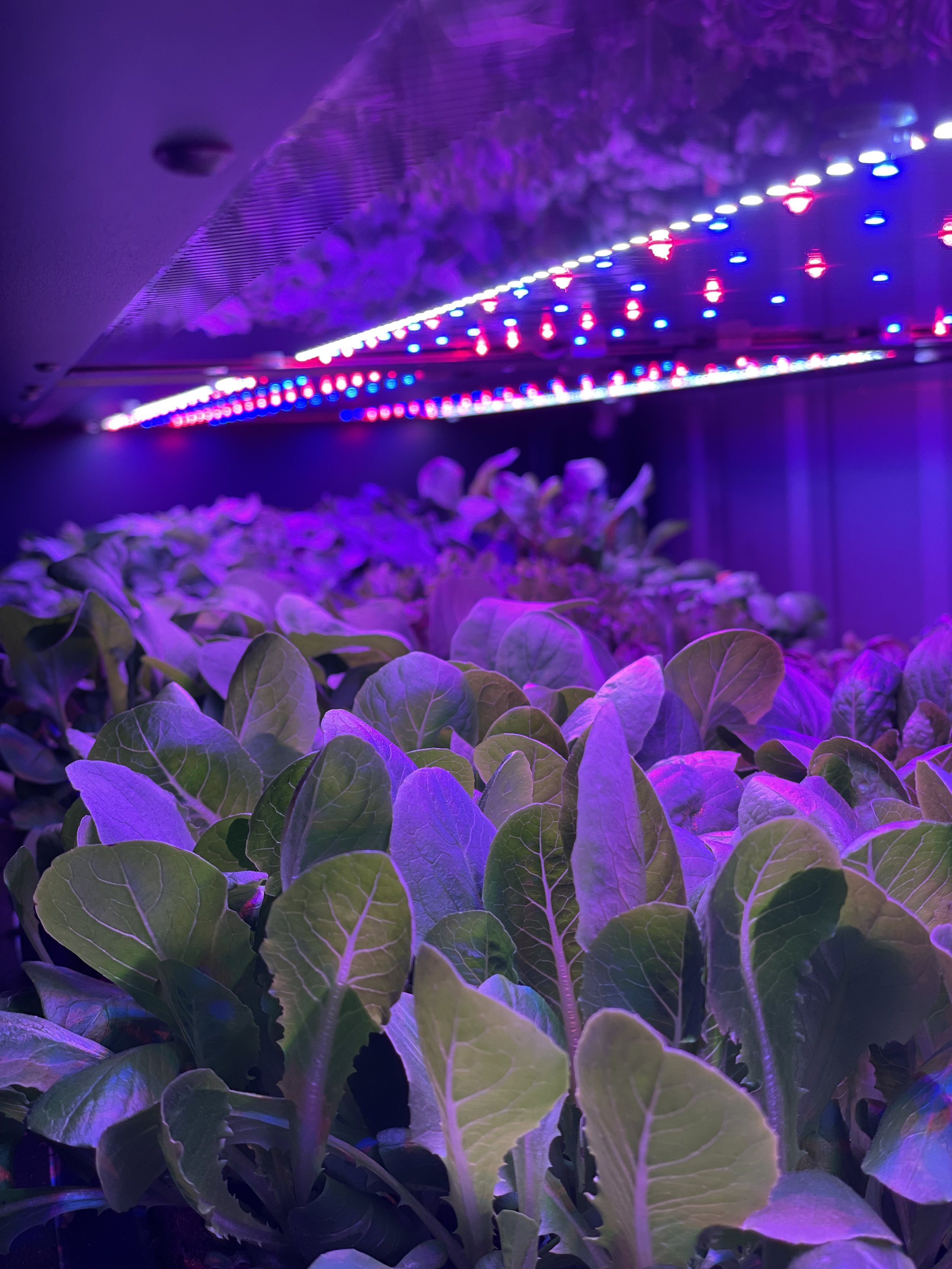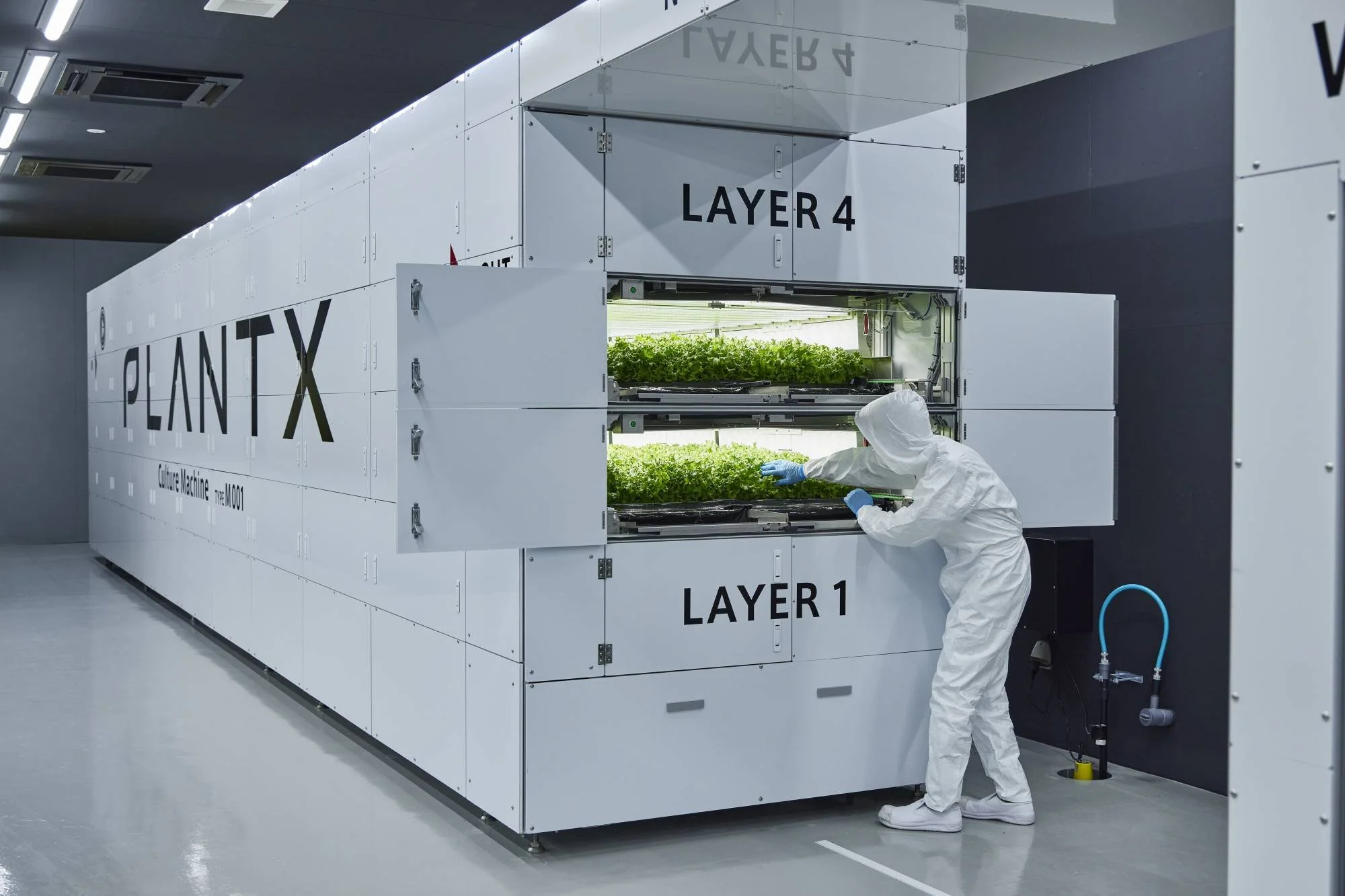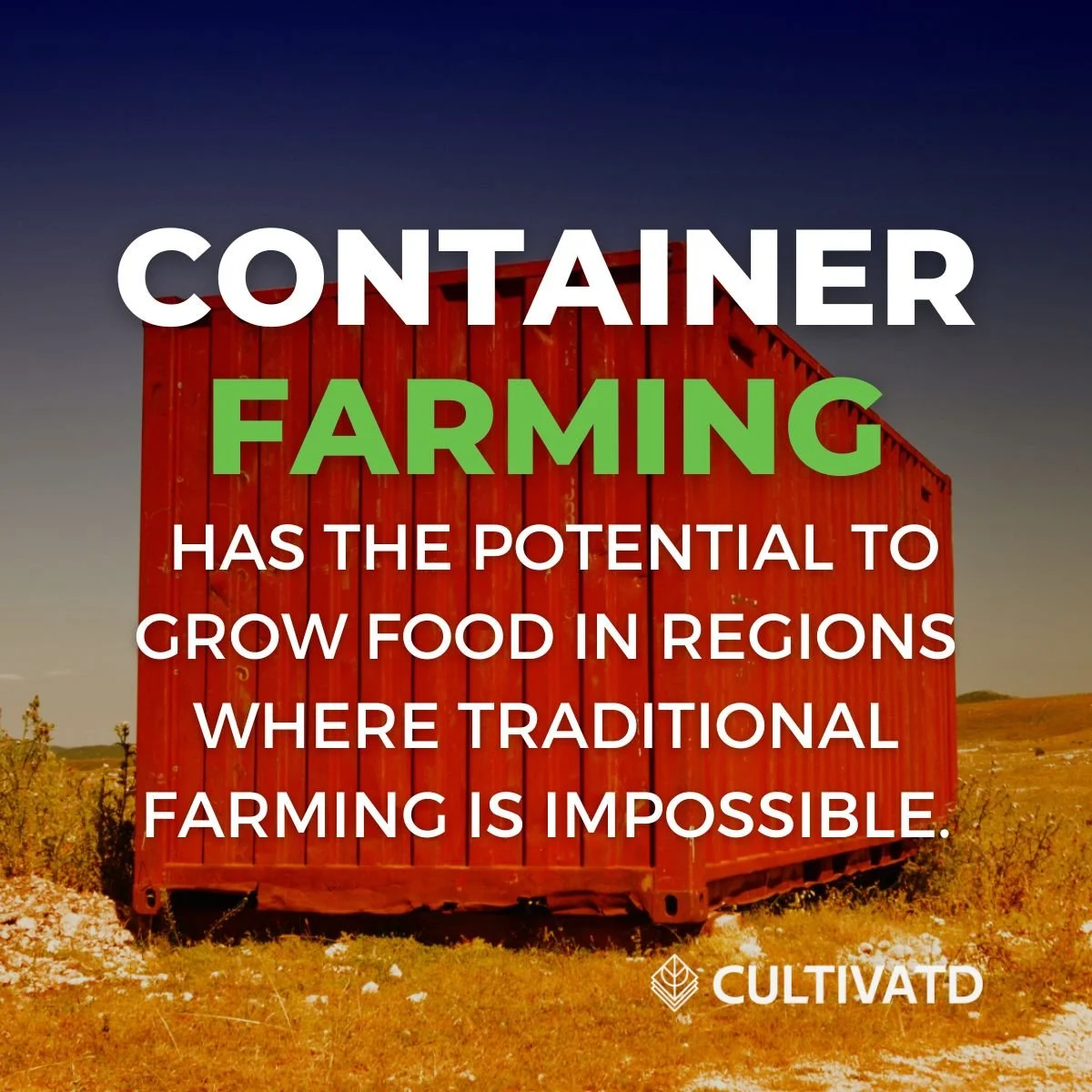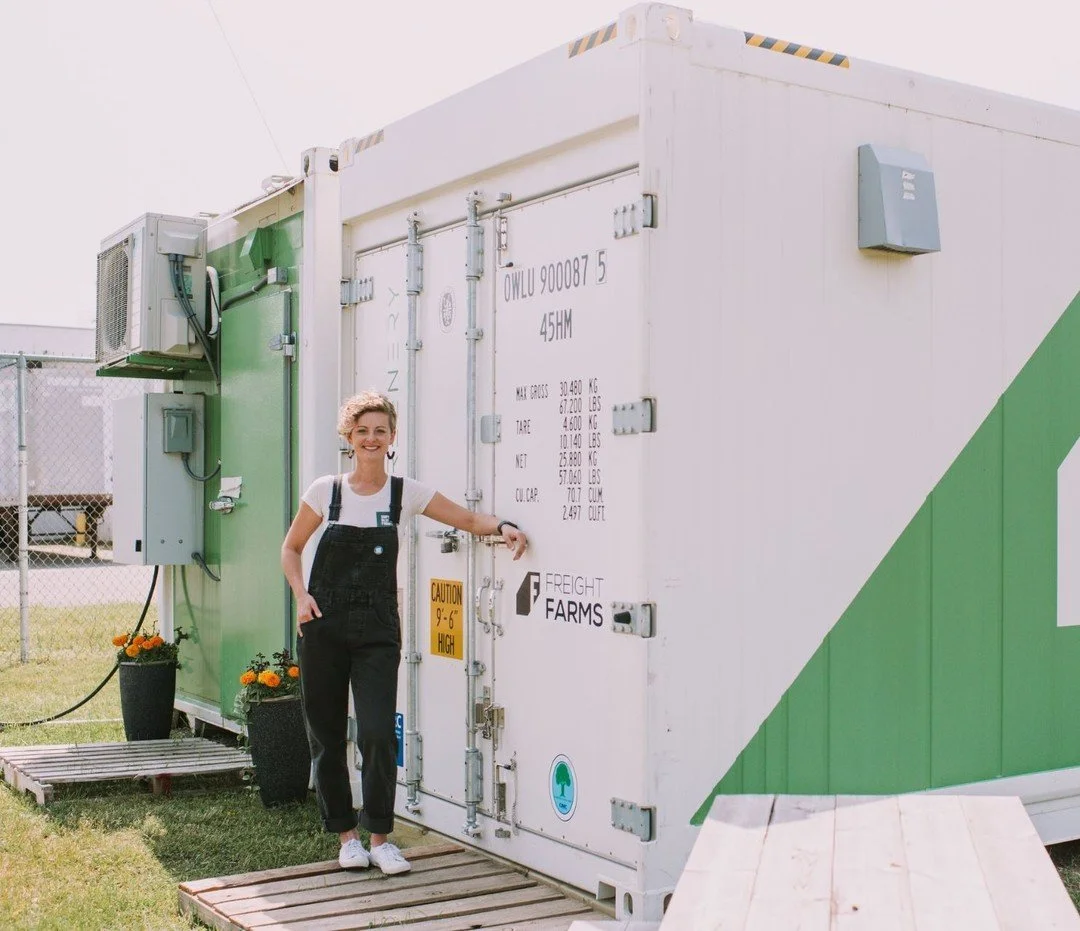
News About Farming in a Shipping Container
From A Mug of Lettuce To A Shipping Container Full. Dartmouth Hydroponics Operation Helping Tackle Food Security Challenges
“I discovered freight farms when I saw a video about the Square Roots project in Brooklyn highlighting the technology and capabilities of growing food in a shipping container. I had no prior knowledge of this growing system before, but I saw a need in the community.”
Pune Software Engineer Uses Hydroponics To Grow Saffron In Shipping Container
“I came up with the idea of using shipping containers to develop controlled environments, where crops can be grown. I went to Mumbai, bought a shipping container for Rs 5 lakh, and had it shipped to Pune. The reason behind using a shipping container is that they are very good insulators,” he explains
United Kingdom: Brands To Buycott - Crate To Plate
Repurposing shipping containers is nothing new in London – we’ve got mini-malls and food courts in Boxpark and offices in Containerville – and now with Crate to Plate, farms can be added to that list
Vertical Farming Has Clear Downsides
Any system, to be worth investing in, needs to do two things. Serve the needs of the plant, and be economically viable for the farmer
Minister Josephine Connolly Visits Primitive Greens Farm In Cayman Islands
A container farm, or freight farm, is a climate-controlled hydroponic farm with a vertical farming system built inside a shipping container that produces a variety of leafy greens
Shipping Container Ice-Cream Concept Proves Popular At Community College
Shipping container concepts have been popping up on college campuses over the past several years. Colorado State chose to house one of its micro-restaurants inside a shipping container, while Auburn University and Georgia State University have utilized the containers for hydroponic farms
Can Urban Farming Play A Key Role In Food Security?
From small orchards to high-tech vertical farming, producing food in urban areas could help address key social and environmental issues
Fact Vs. Fiction: How To Choose A Vertical Farm Provider
Over the last few weeks, we’ve been exploring the options faced by prospective growers. Ultimately, comparing systems means crunching the numbers and understanding your market, your community, and the “why” behind your project
Vertical Farms Mean Vegetables Can Grow Anywhere
A 340-square-foot shipping container produces a yield equivalent to 2 to 4 acres of farmland, or more than 6,000 pounds of leafy greens per year
ACTX Announces New Smaller Size GrowPod Controlled Environment Farm
5-Star resorts and leading hotels are now using smaller modular pods to provide guests with gourmet cuisine experiences
Square Roots Emphasizes Indoor Farming In First Advertising Campaign
The campaign will feature about 15 billboards in its target markets as well as video advertising on the Hulu streaming service and a social media campaign on its platforms
The Indoor Farmer Who’s Using Freight Farms To Increase Food Security For The Cayman Islands
The three Freight Farms allow Primitive Greens to defy the very things that make fresh food so scarce on the island: a lack of arable land, extreme weather which makes farming near-impossible, and those long shipping lines
Container Farming Has The Potential To Grow Food In Regions Where Traditional Farming Is Impossible
Essentially a sustainable ‘farm-in-a-box’, a hydroponic container farm can produce many different crop types using 90% less water and 95% less land*. Grow leafy vegetables, herbs, flowers, fruiting plants, gourmet mushrooms, houseplants, and more!
Spurred On By The Pandemic, Hydroponics Farming Thrives
“Interest was generated during the pandemic, especially in the urban areas, (because) urban areas don’t have access to food,” Roberto F. Rañola, Jr., an agriculture economics specialist and chairman of the Philippine Association of Agriculturists, said
CEA Alliance Highlights Industry Growth During Capitol Hill Visits
Members of the Controlled Environment Agriculture (CEA) Alliance met with more than 25 Congressional, USDA, and State Departments of Agriculture leaders in January to advance the importance of CEA production in the upcoming 2023 Farm Bill and other legislation
Why 2023 Is The Year To Start A Hydroponic Farming Business
Good news! They indicate that 2023 is a great year to start hydroponic farming. From food safety to local purchasing and supply chain to healthy eating and environmental sustainability, recent studies and events suggest that now is the time to start a hydroponic farm
USA: VIRGINIA - Fox Urban Farms Plants The Seeds For Hydroponic Farming In Winchester
Fox Urban Farm Owners Ann and John Fox show a flat of the fresh specialty lettuce they are growing in Winchester’s first urban hydroponic farm on South Loudon Street
USA: ALABAMA - Gulf Shores High School's Small Town, Big Garden Sets Fundraiser
“When feasible, we hope to add a shipping container farm to our program, like the containers in the Transformation Garden at Auburn University-- https://youtu.be/E27CVXS2QzM —so that we will be able to fully sustain our lunchrooms with student-grown lettuce, greens and herbs.”
USA: Jacksonville, Florida - Salvation Army, JEA Working Toward Hydroponic Produce Container Downtown
The social services nonprofit and city utility want to participate on a “smart farm” project at Adams, Lee, Davis and Houston streets with Freight Farms
How A Container Farm Will Benefit Your School Farming Program
School gardens teach students how to grow fresh, nutritious produce and help them develop healthy eating habits. Some school farming programs are forgoing traditional gardens for enclosed hydroponic shipping container farms (HSCFs)





















